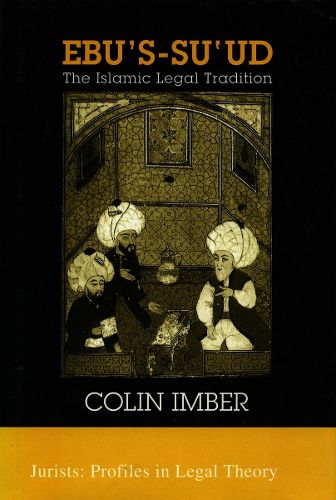Readings Newsletter
Become a Readings Member to make your shopping experience even easier.
Sign in or sign up for free!
You’re not far away from qualifying for FREE standard shipping within Australia
You’ve qualified for FREE standard shipping within Australia
The cart is loading…






The jurist Ebu’s-suud (c. 1490-1574) occupies a key position in the history of Islamic law. An Ottoman tradition, which began in the seventeenth century and which modern historians often reiterate, asserts that Ebu’s-suud succeeded in harmonizing the secular law with the shari ‘a, creating, in effect, a new ideal Islamic legal system. This book examines the validity of this assertion.
The author begins by choosing five areas of Islamic law for analysis: the Sultan and legal sovereignty; land tenure and taxation; trusts in mortmain; marriage and the family; and crimes and torts. In each of these areas, he lays out the most important rules and concepts in the Islamic juristic tradition, and then gives his translations of a selection of Ebu’s-suud’s writings on the topic in question, with a brief analysis. From these materials, the author suggests that readers draw their own conclusions as to whether Ebu’s-suud did indeed reconcile Ottoman secular legal practice with the sacred law.
$9.00 standard shipping within Australia
FREE standard shipping within Australia for orders over $100.00
Express & International shipping calculated at checkout
The jurist Ebu’s-suud (c. 1490-1574) occupies a key position in the history of Islamic law. An Ottoman tradition, which began in the seventeenth century and which modern historians often reiterate, asserts that Ebu’s-suud succeeded in harmonizing the secular law with the shari ‘a, creating, in effect, a new ideal Islamic legal system. This book examines the validity of this assertion.
The author begins by choosing five areas of Islamic law for analysis: the Sultan and legal sovereignty; land tenure and taxation; trusts in mortmain; marriage and the family; and crimes and torts. In each of these areas, he lays out the most important rules and concepts in the Islamic juristic tradition, and then gives his translations of a selection of Ebu’s-suud’s writings on the topic in question, with a brief analysis. From these materials, the author suggests that readers draw their own conclusions as to whether Ebu’s-suud did indeed reconcile Ottoman secular legal practice with the sacred law.